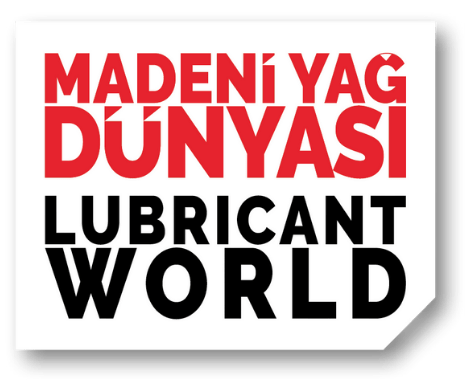Mercedes-Benz Turk Hoşdere Bus Plant, producing buses for Turkish market as well as exporting to a high number of countries around the world with an annual capacity of 4500 units, stands out in the sector with its market share and robotic systems used in production. We received valuable information from Bus Production Manager Ahmet Bodur about Mercedes-Benz Türk and the factory in Hoşdere.
Daimler, one of the leading automotive manufacturers, has been producing vehicles for about 120 years under the Mercedes brand. This year, Mercedes-Benz celebrates its 50th anniversary in Turkey. We would like to learn how the company entered into the Turkish market.
In 1958, the then Prime Minister Adnan Menderes assigned Turkey Isbank to seek the opportunities to establish a company to manufacture buses and trucks in Turkey with contributions of foreign capital. The goal was to produce the car parts that can be manufactured in Turkey with local opportunities, import other parts that require high technology such as engines, and to assemble the vehicles here in order to provide significant foreign exchange savings. In the invitation letter Isbank sent to leading automotive manufacturers and associations around the world, Turkey’s annual demand was indicated as 2000 buses and 5000 trucks, and foreign motor vehicle manufacturers was invited to make investment in Turkey.
Otomarsan Otobüs ve Motorlu Araçlar Sanayi A.Ş., which forms the basis of today’s Mercedes-Benz Türk A.Ş., was established in 1967 under the partnership of Daimler-Benz AG, Mengerler Ticaret and Has Otomotiv. It took 9 years to finalize the establishment of the company because numerous bureaucratic difficulties had to be overcome in order to get the necessary permits, and cancellation of the project was discussed many times due to such challenges.
After the company was established, it first started to produce Mercedes-Benz O302 in Otomarsan’s factory in Davutpaşa although the company initially obtained license for manufacturing trucks, because it was possible to manufacture buses with competitive costs compared to other countries. From 1968 to 1984, Otomarsan produced 14,430 units of this legendary model, which not only brought many achievements to the company, but also made great contribution to the development of the transportation sector and to the advancement of bus management in Turkey.

After 50 years in Turkey, what can you say about the Turkish market? Can you make an assessment in terms of automotive production in Turkey and exports to countries in the region?
We can say the Turkish market has developed to a great extent in 50 years. In this half century, Mercedes-Benz Türk has become the pioneer and leader in the sector by achieving many successes, innovations and records. Today, the buses and trucks that we produce in the Hoşdere Bus Plant in Istanbul and the Aksaray Truck Plant in Central Anatolia are exported to more than 70 countries all over the world. These plants contribute to the national economy by production and employment. Currently, as Mercedes-Benz Türk we produce two out of every three trucks and one out of every two buses in Turkey.
Can you please enlighten us about the production capacity of Mercedes-Benz Türk’s Hoşdere Bus Plant and the technologies used?
Currently the annual production capacity of Hoşdere Bus Plant is 4500 units; this makes a production output of 16 buses a day. When needed, this capacity can be increased by extending shifts but our current production program is set according to orders, and we have sufficient capacity to meet the demand.
As Mercedes-Benz Türk, we have established a robust infrastructure in all production facilities to realize various projects in the field of Industry 4.0. Although bus production is a labor intensive process, we use robots at certain steps of our operation. Particularly in the last period, we started to use welding robots in the production of some segments of the chassis. Moreover, we use painting robots for coating vehicle bodies with primer. In addition, we use joining robots for the production of luggage covers.
Lately we have taken steps towards digitalization and we will continue to do so. For example, we have established the RFID system to monitor the position of buses within the plant. We will continue to work on digitalization to facilitate our business processes.

What distinguishes you from other bus manufacturers?
Competition is getting fiercer in the sector every passing year. Thus, brands which can satisfy their customers not only with new models that they launch but also with their after-sale services and which can meet customer expectations shine through others. As Mercedes-Benz Türk, we take our part in this competition with our new bus models, which are the result of intense work by Turkish engineers in Hoşdere Bus Plant. These models meet Euro 6 emission norms, are high quality, robust and equipped with advanced technology. Under these highly competitive conditions, we believe Mercedes-Benz Türk will protect and even increase its share in all segments of the market, which we expect to grow further.
With the Tourismo series you renewed in January 2018, you made a striking introduction to the market. Can you tell us about the different features of Tourismo?
Our new Tourismo buses combine design and functionality to ensure maximum economic efficiency. Thanks to the improved aerodynamic structure, engine power and reduced vehicle weight, the fuel efficiency is reduced by 4.5 percent compared to the previous model. Compared to a motor vehicle that does not have FE1 package, the new Tourismo consumes 7 percent less fuel.
Apart from these, the security level of the vehicle has been increased thanks to many different safety systems such as Front Collision Guard, Lane Assist, Advanced Emergency Brake System, and Electronic Stability Program.
In addition, flexibility and fast acceleration can be achieved even at low speeds by the optimal powertrain system. Bus operators enjoy low fuel consumption, greater reliability and long service intervals.




